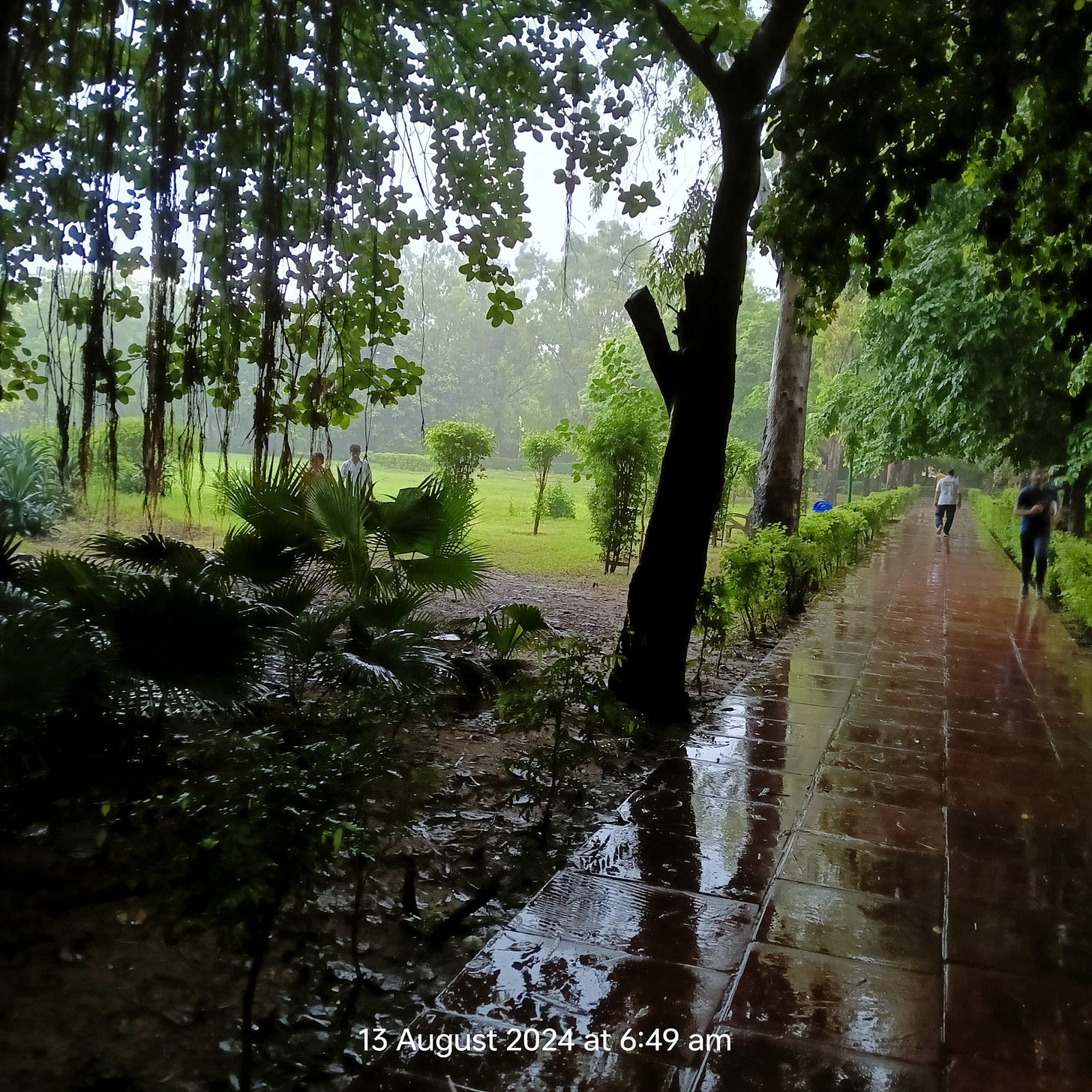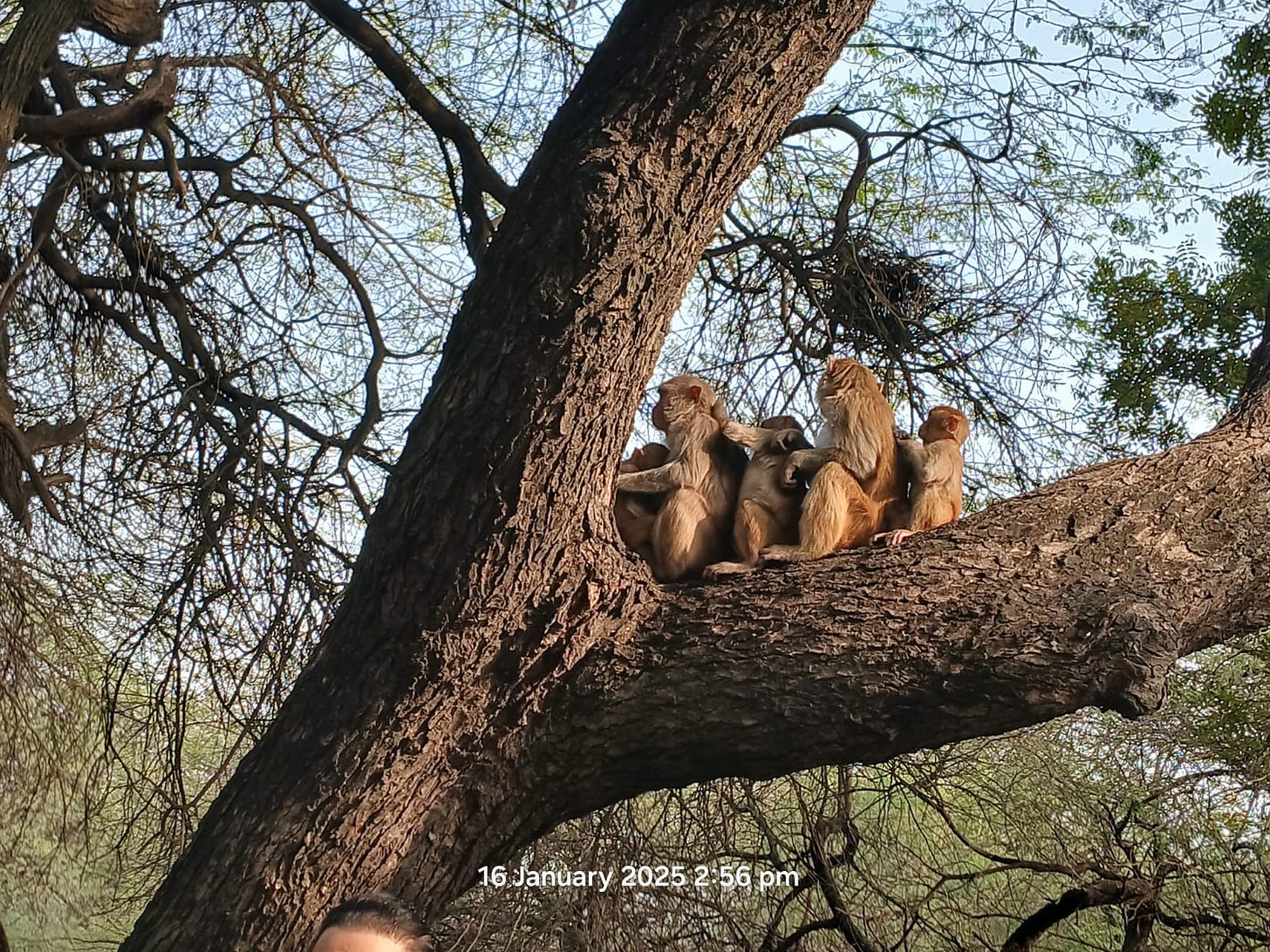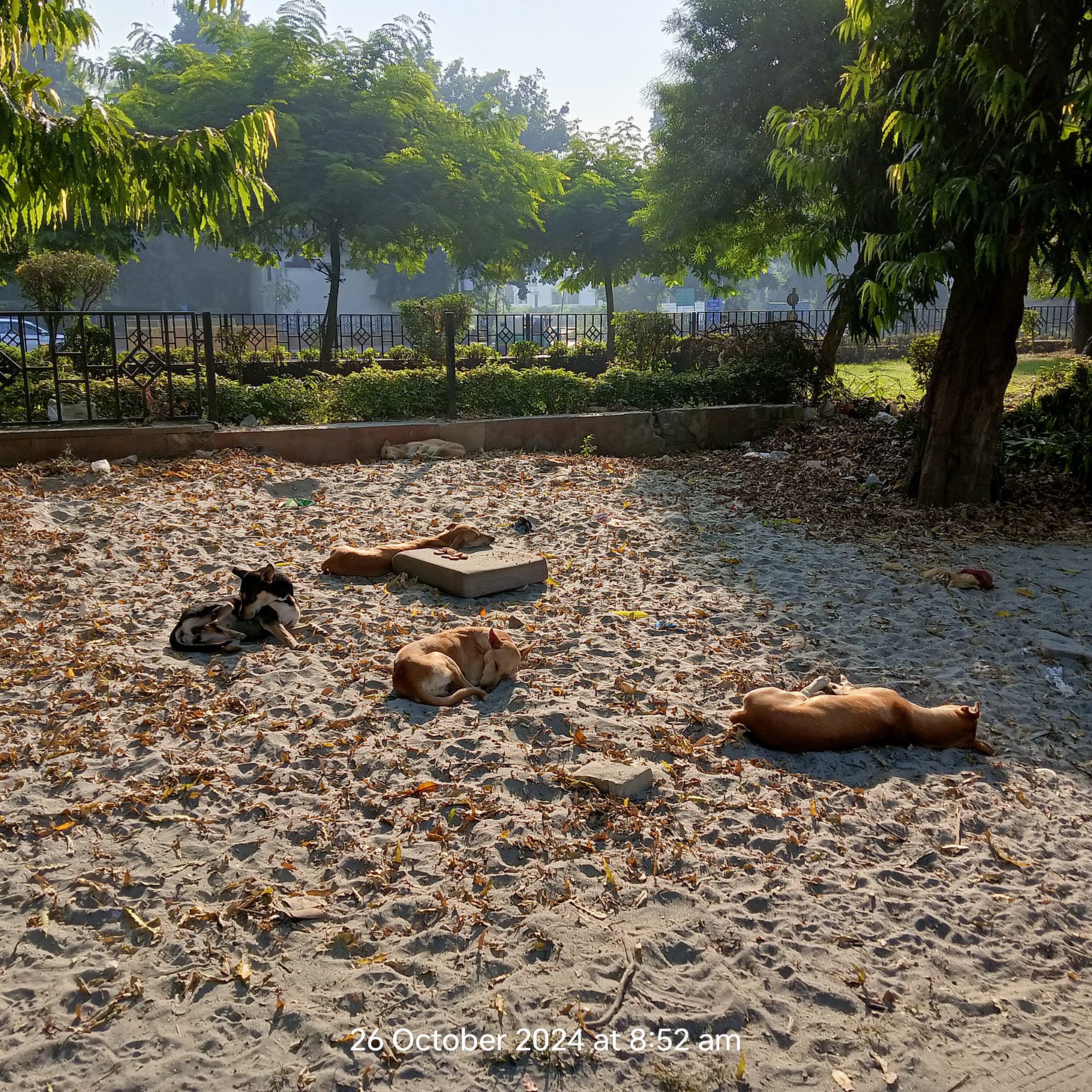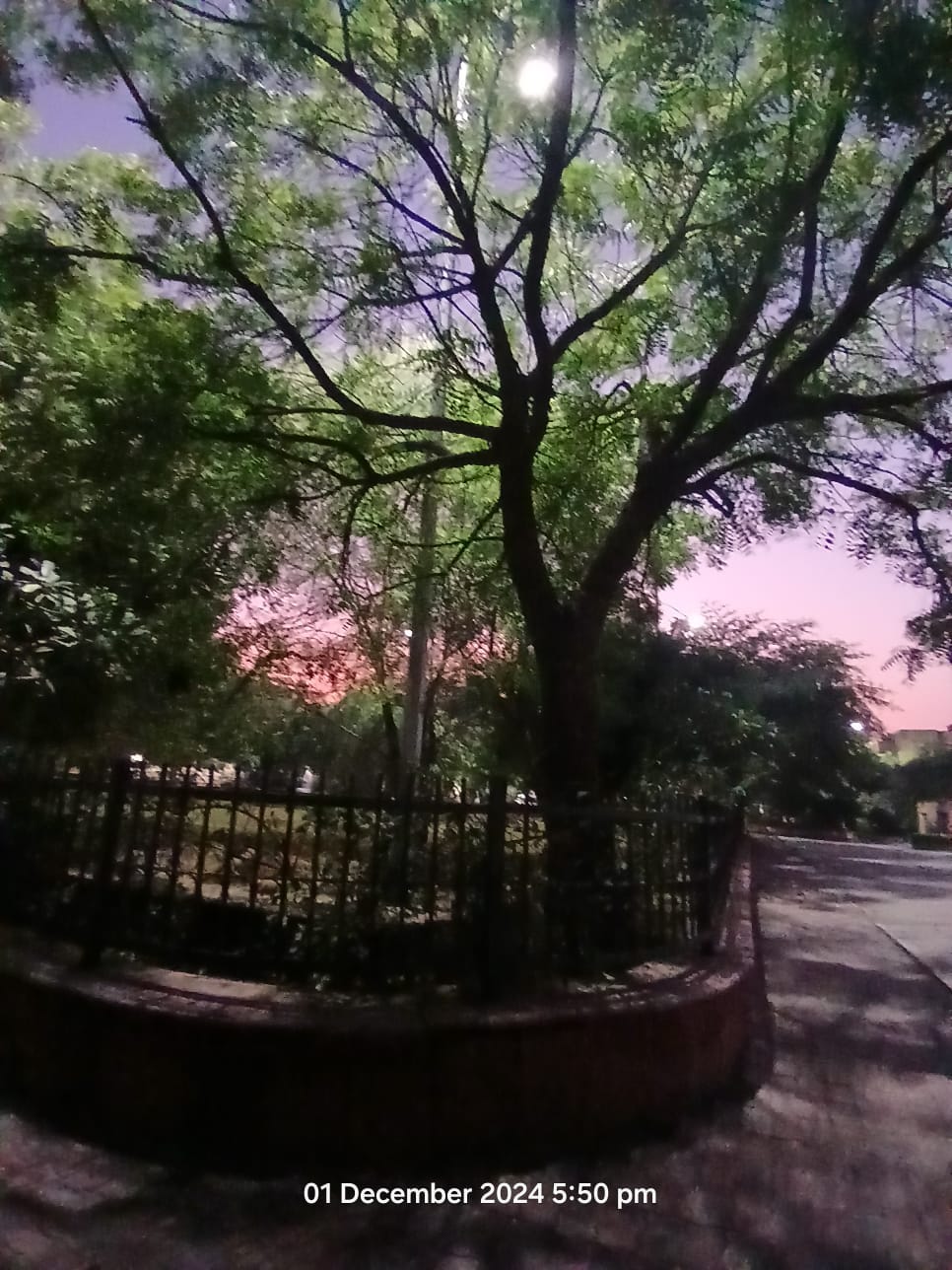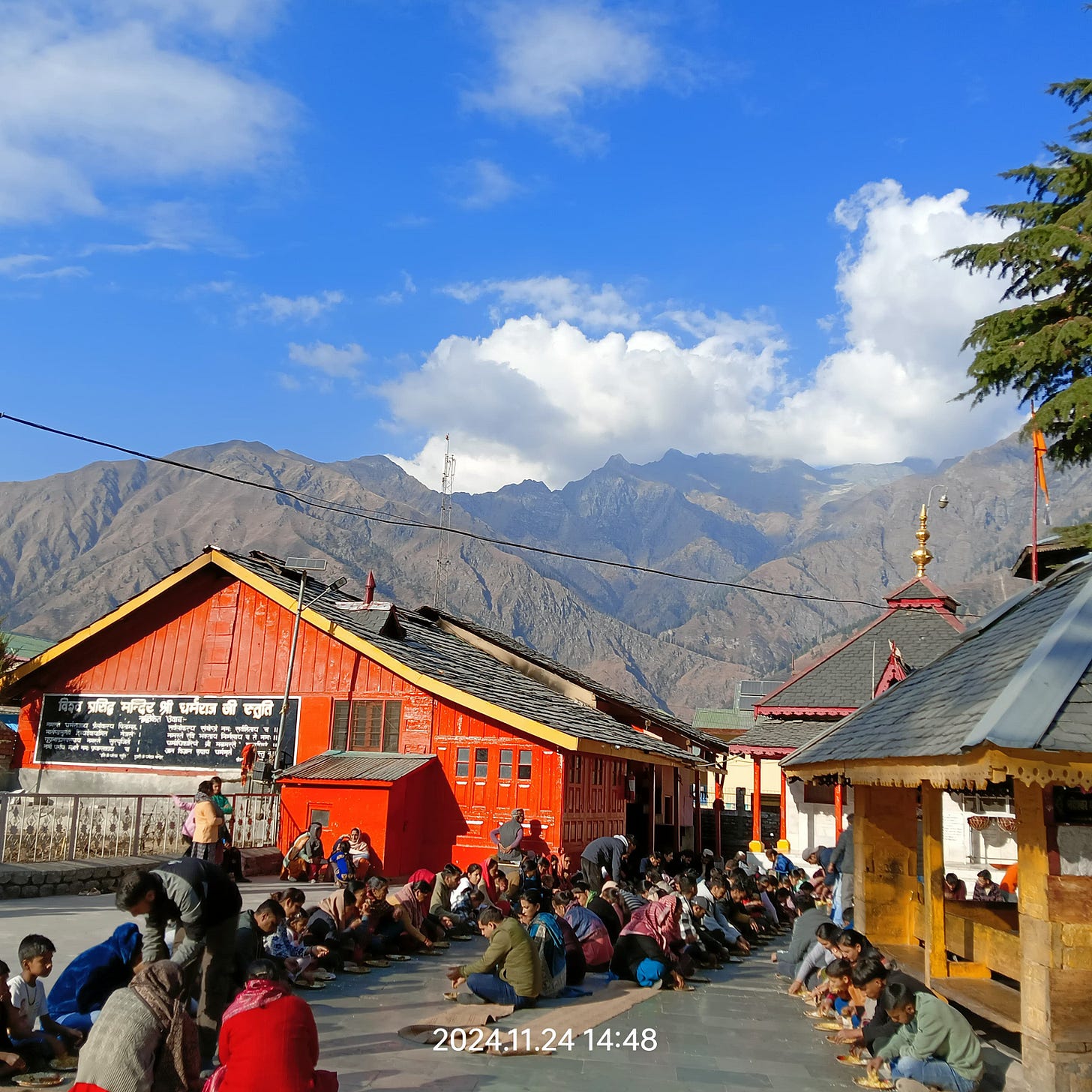The Story of Karna & Shani: When Divine Kinship Meets Karmic Fate
Exploring the Cosmic Bonds, Divine Curses, and Unyielding Destiny in Hindu Mythology
Did you know Karna and Shani are brothers? Well, technically!
Both are sons of Surya—the Sun God in Hindu mythology—who has several notable children, some of whom have earned fame in epic texts like the Mahabharata, Ramayana, and Puranas.
Now, with this nugget of cosmic kinship in mind, one might wonder:
Why did Shani, the god of justice and righteousness (exalted in the astrological sign of Libra—the celestial courtroom), not help our tragic hero Karna, who is nothing short of our very own Severus Snape? Poor Karna had to endure a heartbreaking fate—and didn’t even get to enjoy the love of his life.
How Unfair!
I set out to do some research and uncovered a fascinating folk narrative: in some tellings, Shani does indeed warn Karna before the war.
Here’s how the story goes:
Shani’s Visit to Karna- A Folk Narrative
According to one regional tradition, as the great Kurukshetra War approached, Shani—widely revered as the dispenser of karmic justice—observed Karna’s approaching doom. In this narrative, Shani, adopting the guise of an astrologer, sought an audience with Karna. During this encounter, he is reported to have cautioned:
"Your fate is not determined by your abilities alone, but by the company you keep. The forces aligned with adharma—embodied by Duryodhana and his allies—do not promise a favorable outcome. Consider altering your course, and you may yet secure a more honorable destiny."
Karna, renowned for his steadfast loyalty and deep personal honor, is said to have replied with quiet resignation:
“I am aware of my destiny. My commitment to Duryodhana is rooted not only in gratitude for the respect he has shown me, but also in the duty I feel to honor my own dharma.”
After hearing Karna’s response, Shani is reported to have revealed his true form and stated:
"The laws of karma are immutable. Your path is set, and you must face the consequences of your choices."
While this episode is not found in the critical Sanskrit texts of the Mahabharata, it is present in various regional retellings and oral traditions. It serves as an evocative example of how local narratives attempt to grapple with the tension between divine mercy and the inexorable force of destiny.
When Kinship Yields to Karma: Why Even Shani Could Not Save Karna
Several perspectives from Hindu philosophy and the Mahabharata may help explain why Shani would not have persisted in convincing Karna further. Karna’s life is one of the most poignant illustrations of how cosmic justice, divine curses, and personal choices converge to shape a destiny that even the gods cannot alter. Let’s explore three interlinked aspects of his story:
1. Shani’s Role as the Enforcer of Karma
Shani is revered as Karmaphaladata—the dispenser of karma. His unyielding gaze ensures that every deed, noble or otherwise, reaps its due reward or consequence. Traditional texts and hymns (like those in the Shani Stotra) portray him as an impartial arbiter of cosmic justice. His role is not to meddle with destiny but to let the inexorable law of karma unfold. In this framework, even divine beings adhere to cosmic rules—and Karna’s very existence is a testament to that order.
Birth and Abandonment:
Karna was born when Kunti, exercising a divine boon by invoking Surya, brought him into the world. Yet, societal constraints and personal fears led her to abandon him. This act—mentioned in the Adi Parva of the Mahabharata—set Karna on a path marked by hardship and societal rejection, illustrating the interplay of personal action and past-life karma.
Loyalty and Destiny:
Despite knowing that Duryodhana’s path was steeped in adharma, Karna chose loyalty to the only person who offered him respect. This deep sense of gratitude and honor cemented his karmic destiny, reflecting the Vedic principle that “karma is the great equalizer” (as echoed in the Bhagavad Gita, Chapter 4).
2. The Curse of Parashurama and the Role of Fate
Even if Shani observed Karna’s plight with compassion, the cosmic ledger was already inscribed by divine curses—consequences of actions that even gods cannot rescind.
Curse of Parashurama:
Eager to master warfare, Karna became the student of the formidable sage Parashurama by disguising himself as a Brahmin. When Parashurama discovered this deception, he cursed Karna. He foretold that at the moment Karna would require his ultimate weapon—the Brahmastra—he would forget its invocation. Documented in the Karna Parva (Section 91) of the Mahabharata, this curse epitomizes the cosmic balance imposed on even the greatest of talents.
What’s interesting though is, WHY would Karna be eager to “master” warfare?
Karna was driven to master warfare as a means of proving his worth and defying the stigma of his lowly origins. Abandoned and constantly underestimated by society, he sought honor and recognition in a world where martial prowess was the ultimate measure of one's value. His determination was further fueled by loyalty to Duryodhana, who had offered him respect and a place among warriors, and by a desire to challenge the seemingly preordained limits of fate, carving out a legendary legacy on his own terms.
Curse of a Brahmin:
In another significant incident, Karna accidentally killed a cow belonging to a Brahmin, an act that was met with a fierce curse. The Brahmin predicted that during a crucial battle moment, Karna’s chariot wheel would sink into the earth—a prophecy that tragically materialized. This event (recorded in Karna Parva, Section 93) reinforces the idea that every action, even unintentional ones, leaves a karmic imprint.
3. Karna’s Own Choices Sealed His Fate
Karna’s life is a rich story woven from courage, generosity, and unwavering duty, yet it is equally defined by choices that steered him toward tragedy.
The Humiliation of Draupadi:
During the infamous dice game, Karna’s derogatory remarks against Draupadi deepened the moral quagmire of the Kurukshetra war. His involvement in her public humiliation left an indelible mark of adharma, as detailed in the Sabha Parva (Section 67) of the Mahabharata.
The Killing of Abhimanyu:
In the heat of battle, Karna participated in the coordinated assault against the young and valiant Abhimanyu—a deed that strayed from the ethical conduct expected in warfare. Although not the one delivering the final blow, his involvement in this act further complicated his moral standing (as recounted in the Drona Parva, Section 47).
Loyalty to Duryodhana:
Perhaps the most defining aspect of Karna’s fate was his steadfast loyalty to Duryodhana. Even when Krishna extended an opportunity for Karna to embrace dharma in the Udyoga Parva (Section 141), Karna’s deep sense of gratitude and personal honor compelled him to remain true to his friend—even if it meant aligning with adharma. This choice encapsulates the tragic conflict between personal duty and universal righteousness that lies at the heart of the Mahabharata.
While the epic portrays Karna as accepting his fate with dignity, many scholars interpret his relentless pursuit of martial mastery as a quiet rebellion against the constraints of destiny, as he strove to carve out a legendary legacy of his own.
Whatever it may be, Karna’s life poses profound questions: To what extent are we the architects of our own fate? While divine forces and immutable cosmic laws may set the stage, it is our free will—and the choices we make—that ultimately determine our destiny.
Our Concluding Reflection Lies With Their Third Brother, Yama
Both Karna and Shani bear tragic burdens that underscore the inescapable law of karma. Despite Karna’s noble heart and indomitable spirit, his destiny was forged by a series of unfortunate circumstances and divine curses. Similarly, Shani, the relentless enforcer of justice, carries the heavy responsibility of ensuring that every soul meets its karmic dues—even as he grapples with his own isolation within the celestial order.
Amid these tales of suffering and duty shines a beacon of cosmic balance: their third brother, Yama—the lord of death and the ultimate adjudicator of karmic accounts. Yama’s role reminds us that while the ledger of karma may bear scars, it is not unchangeable. With sincere effort, one can burn away past karmas and step into a new chapter of rebirth and redemption.
But if you’re curious about how Yama orchestrates this celestial reset—well, that’s a story for another day.
Note: The narratives and interpretations presented here draw on a variety of sources, including regional oral traditions, later commentaries, and select passages from critical editions of the Mahabharata. Readers are encouraged to consult primary texts and academic studies for a more comprehensive understanding of these complex themes.
May this exploration inspire deeper reflection on the forces of karma, the consequences of our choices, and the interwoven strands of destiny that shape our lives.
A picture of the Dharamraj Temple (the orange hut) in Bharmour, Himachal Pradesh. I visited this sacred site with my mother last year. Dedicated to Dharamraj (Yamraj), the cosmic judge of Hindu mythology, this temple is believed to be the only earthly 'Nyayalay' (court of justice) of Dharamraj. According to local lore, every soul must pass through this temple after death before moving on to its destined afterlife, where Chitragupta, the divine scribe, records their karmic deeds.
A particularly haunting belief surrounds those who die by suicide—it is said that such souls must stand in a long queue outside the temple, waiting for their turn to be judged. Unlike those who die naturally and proceed swiftly through the court, suicidal souls are trapped in a state of limbo, unable to move forward until called upon. Some say they wait for years, even centuries, before Dharamraj allows them to transition—either to another birth or their final destination.
Just outside the temple lies a drain (nali), which, according to legend, serves as a pathway for souls who have been denied liberation. Those burdened with unresolved karma are believed to be cast into this drain, returning them to the cycle of rebirth. Locals say that spirits of the restless dead can sometimes be felt in this area, reinforcing the idea that some souls linger in the mortal realm rather than reaching the afterlife.




